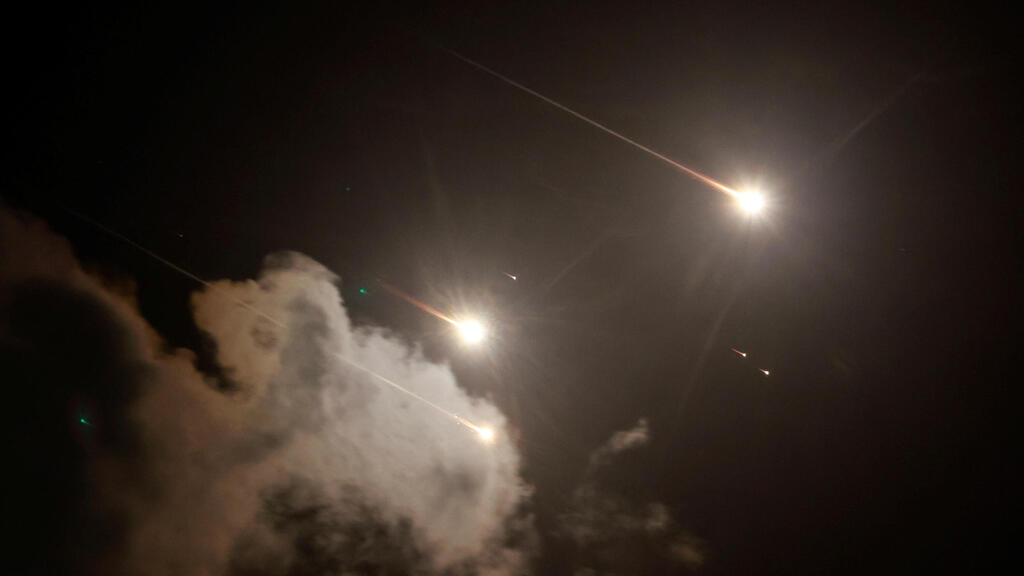Getting your Trinity Audio player ready...
Iranian missiles intercepted across Israel
(Video: Arnon Bossani, Aviv Leshem)
Following Iran’s missile barrage, which saw more than 180 rockets launched across Israel, the IDF vowed Tuesday night to carry out "powerful airstrikes throughout the Middle East."
The military confirmed that the Air Force remains fully operational. Additionally, Israeli and U.S. defense systems effectively intercepted many of the incoming missiles, with the IDF reporting close cooperation in detection and interception efforts.
Senior Israeli officials vowed Tuesday evening that Jerusalem will not remain silent following Iran’s large-scale missile attack. A defense official promised a "severe response," while another Israeli official warned, "What Iran has suffered so far is only a fraction of what it will face now."
A high-ranking government official added, "Israel has full legitimacy for an unprecedented strike on Iranian soil—this is the time to strike at the head of the Iranian snake."
Shortly after the missile barrage began, and minutes after the Home Front Command lifted the order to remain in shelters, IDF spokesperson Rear Admiral Daniel Hagari addressed the nation, saying, "There will be consequences for the missile fire from Iran."
Interceptions filmed from flight to Israel that turned around at the last moment and landed in Cyprus
When asked if the IDF would respond soon, he replied, "We have plans and are very well-prepared for an attack. We will conduct an assessment." Hagari noted that, for now, the IDF does not detect additional aerial threats from Iran but urged the public to remain vigilant and follow Home Front Command instructions.
As part of the Iranian assault, approximately 180 ballistic missiles were fired on Israel, which had repeatedly warned in recent days that any attack from Tehran would trigger a harsh response, and earlier Tuesday, the United States also warned Iran of "severe consequences" should it launch an attack. Against this backdrop, Israeli threats of retaliation were issued throughout the evening.
Shortly after the missile strikes, Iran’s Revolutionary Guard released a statement claiming the attack was in retaliation for the "martyrdom" of Hamas leader Ismail Haniyeh, Hezbollah leader Hassan Nasrallah and Iranian Quds Force commander in Lebanon Abbas Nilforoushan. The statement warned that "if the Zionist regime responds to the Iranian attack, it will face violent assaults."
Iranian missiles crash in southern Israel
(Video: Suleiman Shalibi)
Despite the heavy Iranian missile barrage, Israel’s air defense systems, potentially with assistance from foreign forces, appeared to have successfully intercepted most of the rockets. The Magen David Adom (MDA) ambulance service reported that two people were lightly injured from shrapnel near Tel Aviv, and several others were injured while rushing to shelters across the country.
In the aftermath of the missile attack, the Israel Airports Authority announced that Israeli airspace had been temporarily closed, diverting incoming flights to airports outside the country. Airspace was reopened shortly after.
Get the Ynetnews app on your smartphone:






